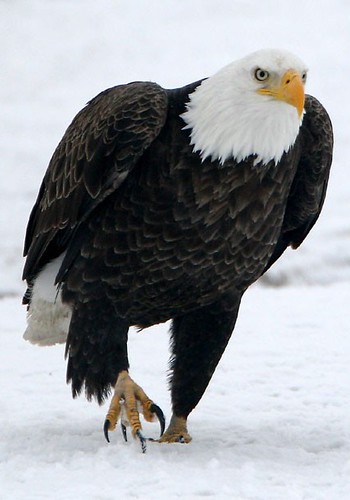
Despite the many benefits which come from clean wind energy, one of the most majestic birds of prey, the eagle, is itself falling prey to the blades of wind-energy facilities. For reasons still not clear to scientists, eagles are vulnerable to collisions with wind turbines, and in some areas such collisions can be a major source of the bird’s mortality.
For this reason a research team led by of U.S. Forest Service scientist Teryl Grubb successfully captured and instrumented the first of six adult bald eagles with GPS devices during a recent winter trapping effort in Michigan.
One of the first to be outfitted with the non-encumbering lightweight device, which resembles a tiny bird backpack, was an adult female eagle. She was fitted with a solar powered transmitter that records GPS locations four times per hour, and downloads data daily to the nearest cell tower. The data will provide amazing precision in bald eagle behavior patterns and habitat use.
Although more is known about the golden eagle and wind turbine mortality, very little is known about the bald eagle’s interactions with wind farms. It is hoped by Grubb and other scientists that the knowledge gained from monitoring bald eagles can be used by the wind-energy industry to make informed decisions on effective ways to reduce eagle fatalities at their facilities.



